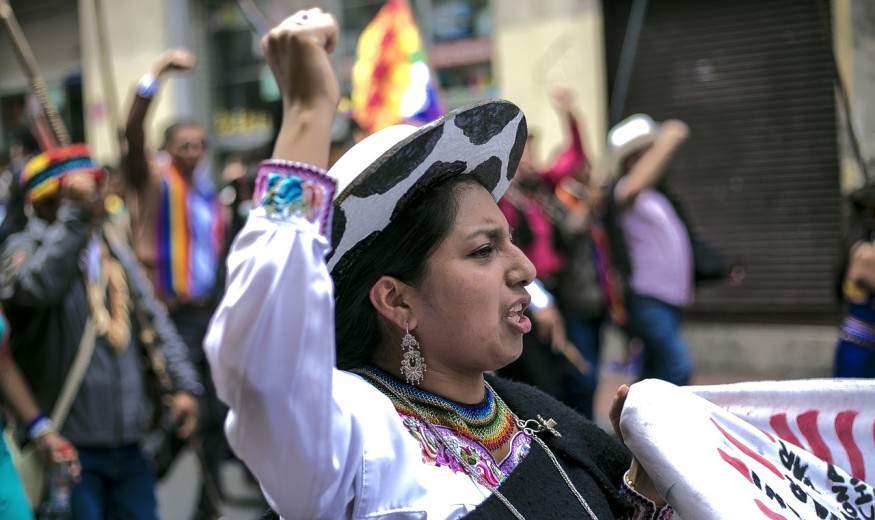The death toll for environmental activists and environmental defenders reached 212 last year, equivalent to more than four deaths a week.
The report was from Global Witness, an international NGO that works for preventing extractive industries from infringing on human rights.

It also indicated that the figure, which had a significant spike since 2018, makes 2019 the deadliest year for environmental activists standing up for land and water resources from mining, agribusiness, and fossil fuel interest. Global Witness also said that the figure could be higher, as some cases go undocumented.
Colombia is the deadliest country in 2019 had 64 killings from 24 in 2018.
The next was the Philippines, with 43 killings, while Brazil had 24. In Brazil, 90 percent of the killings were in the Amazon Region.
Honduras also recorded a dramatic increase in killings from four in 2018 to 14 in 2019.
Europe had two recorded killings in Romania for a case related to illegal logging.
Africa recorded seven deaths, but verifying cases in the region remain a challenge.
Read: Indian Environmental Activist Afroz Shah Detained for Helping Migrants
The Environmental Defenders
The victims, however, are not limited to activists. It also includes community members, scientists, and even journalists.
Two journalists, Maraden Sianipar and Maratua Siregar, were found dead near a palm oil plantation in Indonesia on October 30 and 31 last year. The victims were reportedly mediating a land dispute between residents and palm oil companies.
Kazakhstan wildlife ranger Yerlan Nurghaliev was killed protecting saiga (Saiga tatarica), a critically endangered antelope. He was severely beaten by poachers and later succumbed to the injuries.
Turkish scientist Bulent Sik was jailed last year for publishing the results of a study that the toxic pollution in western Turkey poses cancer risks. Interestingly, the government commissioned him to do the research-the same government that arrested him.
In Iran, conservationists were convicted for collaborating with the US, an enemy state while protecting the Asiatic cheetah (Acinonyx jubatus venaticus).
According to the report, governments worldwide like the US, Brazil, Colombia, and the Philippines are using the COVID-19 pandemic to "implement draconian measures to control citizens and roll back hard-fought environmental regulations."
In Cambodia, extractive companies bulldozed indigenous lands while people are on lockdown orders.
Meanwhile, two indigenous leaders, Omar and Ernesto Guasiruma, were killed at their homes' comfort while isolating because of the pandemic. Among those injured in the attack were their relatives.
READ: Remembering India in 2016: How Global Parli and an Entire Community Survived a Drought
Lethal Issues
The mining issue was the deadliest sector, where 50 fatalities were reported last year.
Agribusiness was the leading cause of the attack in Asia, 90 percent of which happened in the Philippines.
Logging-related issues claimed 24 lives.
The majority of campaigners were threatened by arrests, lawsuits, threats, and violent attacks, with indigenous people inexplicably affected.
The report also revealed that 40 % of the environmental defenders were indigenous peoples.
Although the female defenders represented 10 % of the fatalities last year, women defenders are subjected to another harassment; women face smear campaign using sexist or sexual content and sexual violence.
According to Rachel Cox, a campaigner at Global Witness, "Agribusiness and oil, gas and mining have been consistently the biggest drivers of attacks against land and environmental defenders -- and they are also the industries pushing us further into runaway climate change through deforestation and increasing carbon emissions."
READ NEXT: The Cost of Slowing Deforestation to Prevent the Next Pandemic
© 2025 NatureWorldNews.com All rights reserved. Do not reproduce without permission.





